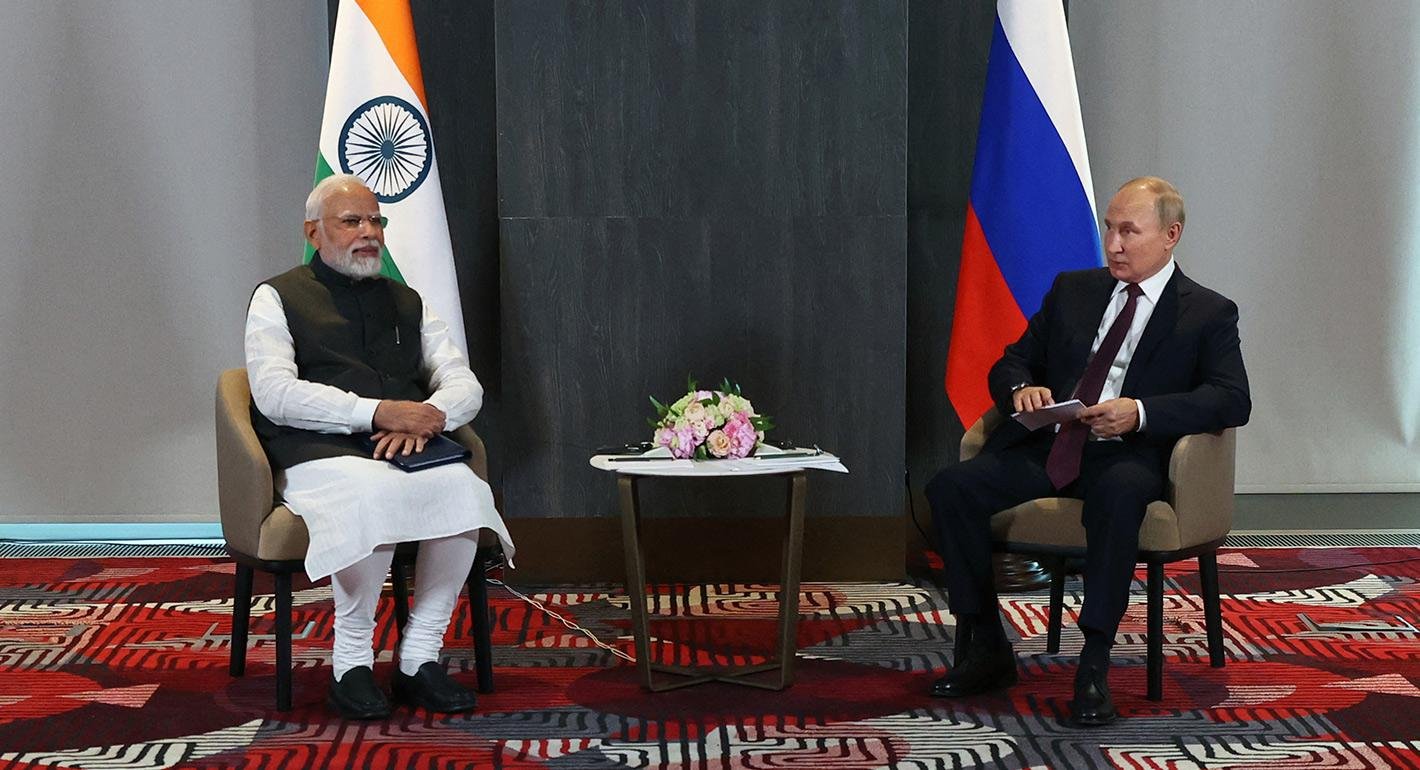Russia has long hoped that India would join the “Afghan Quad,” a grouping currently consisting of Russia, China, Pakistan, and Iran. The aim of this quad is to ensure regional stability and secure mutual interests in Afghanistan. Russia has expressed its desire for India to become part of this coalition, believing it would be beneficial for both India and the region. However, experts highlight the complexities and challenges India may face if it decides to join the Afghan Quad.
The Afghan Quad’s Formation and Goals
This quad was initially formed with the goal of bringing stability to Afghanistan, leveraging the influence of these four countries. The inclusion of Pakistan in the group complicates matters for India, given the historical and ongoing tensions between the two nations. Experts have pointed out that India may be reluctant to join the Quad as long as Pakistan remains a member, due to the contentious relationship between India and Pakistan.
Russia’s Position and Hopes for India’s Participation
Russian Foreign Minister Sergei Lavrov recently spoke on the matter, expressing hope that India would consider joining the Afghan Quad. He stated that India’s involvement would be a significant step to increase its role in Afghanistan and enhance its influence in the region. However, India has not officially responded to Russia’s proposal yet, leaving room for speculation about its stance on the issue.
Challenges in India’s Potential Inclusion
The primary challenge to India’s inclusion in the Afghan Quad lies in the ongoing tensions with Pakistan. Experts argue that Pakistan’s historical support for the Taliban, which goes against India and American interests, creates a barrier for India’s participation. One expert noted that for India to join, Pakistan would need to address its longstanding issues with Afghanistan and perhaps reconsider its support for the Taliban.
Another expert suggested that India’s involvement could be more likely if the relationship between Pakistan and Afghanistan continues to deteriorate. In such a scenario, India could find more common ground with Russia and Iran, whose regional interests align with India’s goals of promoting stability in Afghanistan.
A New Diplomatic Platform for India?
Russia’s hopes for India’s involvement in the Quad come at a time when India has already started engaging diplomatically with the Taliban. Recently, India’s Foreign Secretary Vikram Misri met the Taliban’s Foreign Minister in Dubai, marking the first official engagement since the Taliban took power. Despite this meeting, India has yet to formally recognize the Taliban regime as the legitimate government of Afghanistan.
India’s diplomatic outreach to the Taliban is part of a broader strategy to increase its influence in Afghanistan, which might make participation in the Afghan Quad more appealing. Joining the Quad could give India a stronger voice in regional affairs and offer opportunities for dialogue with both Pakistan and China.
Strengthening India’s Regional Role
One expert argued that India’s inclusion in the Afghan Quad would not only enhance its credibility as a regional power but also make India a key humanitarian ally for Afghanistan. Moreover, it could reinforce India’s role in promoting peace and combating terrorism in the region. Many believe India missed an opportunity to join the Quad after the U.S. withdrawal from Afghanistan in 2021, and it may now be more inclined to do so in light of recent developments.
Lavrov’s Perspective on India’s Role in the Quad
Foreign Minister Lavrov also emphasized that India’s participation would help strengthen dialogue among India, Pakistan, and China. He noted that the Quad would provide a platform for these nations to engage with each other more constructively, fostering better understanding and cooperation. Lavrov’s statement reflects Russia’s belief that India’s inclusion would contribute to resolving the challenges in Afghanistan and enhance regional stability.
The Ongoing India-Pakistan Rivalry
Despite Lavrov’s optimism, the inclusion of Pakistan in the Afghan Quad remains a significant obstacle for India. Relations between the two countries have been fraught with tensions, particularly since the 2019 Pulwama attack, which led to an airstrike by India on Pakistani soil. This event severely soured diplomatic relations, which have remained tense ever since. The suspension of trade and the cessation of official dialogue have only deepened the rift.
Recently, India’s Foreign Minister S. Jaishankar stated that Pakistan had no interest in resuming trade relations with India, despite India’s efforts to foster better economic ties. This lack of cooperation makes it highly unlikely that India would join a Quad in which Pakistan plays a central role.
Conclusion: Will India Join the Afghan Quad?
While experts are divided on whether India will ultimately join the Afghan Quad, it is clear that the decision will depend on a complex mix of regional dynamics and India’s broader foreign policy goals. While Russia’s invitation presents an opportunity for India to enhance its role in Afghanistan, the longstanding tensions with Pakistan remain a significant hurdle. Until India makes an official statement on the matter, it remains uncertain whether it will align itself with this strategic coalition.
